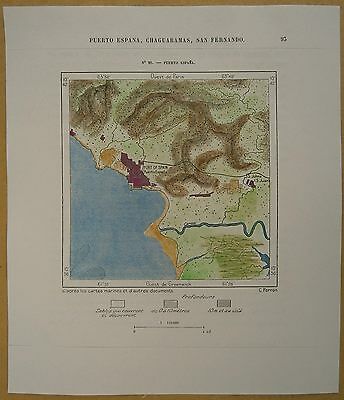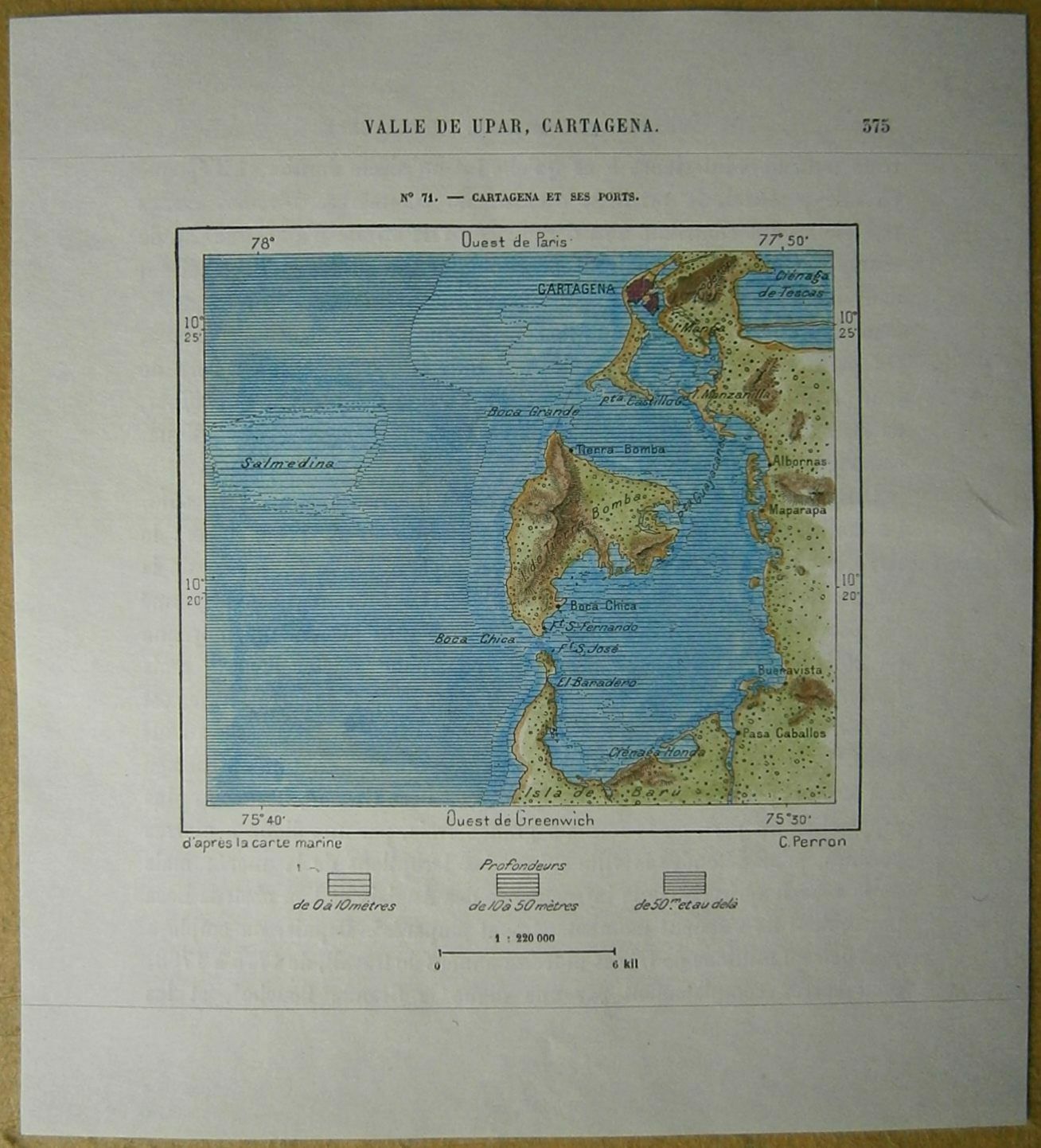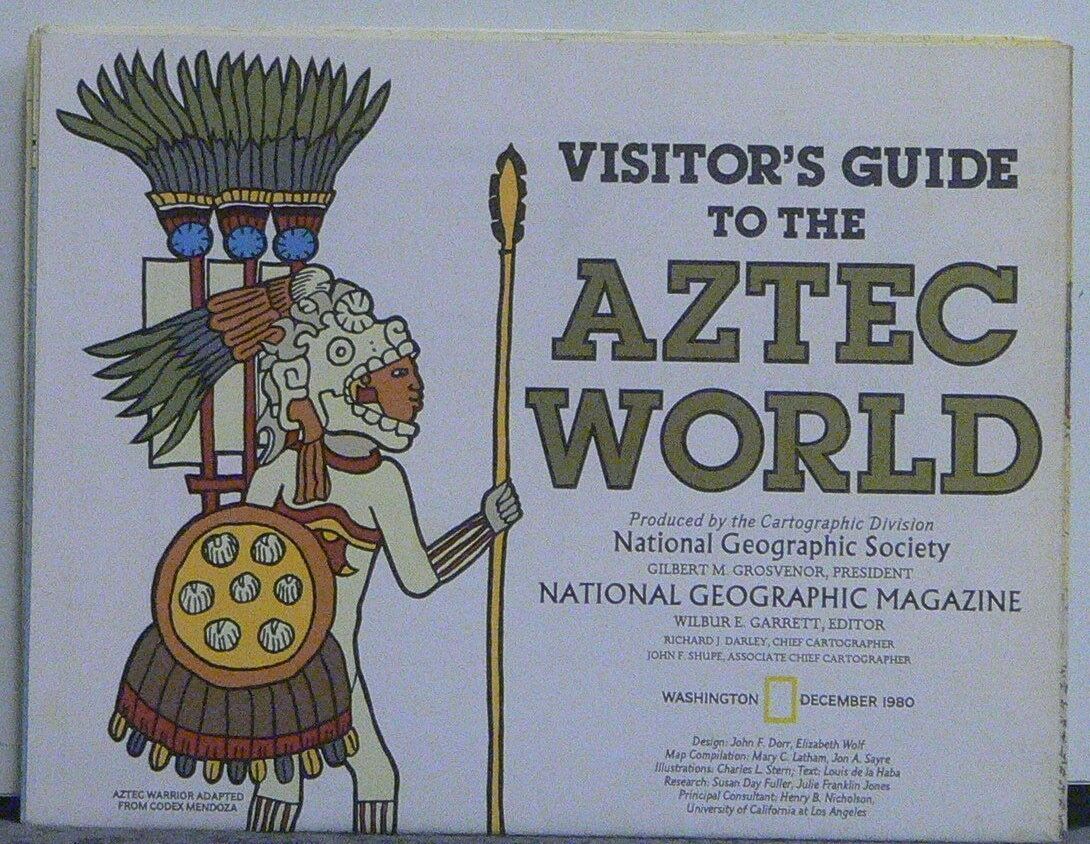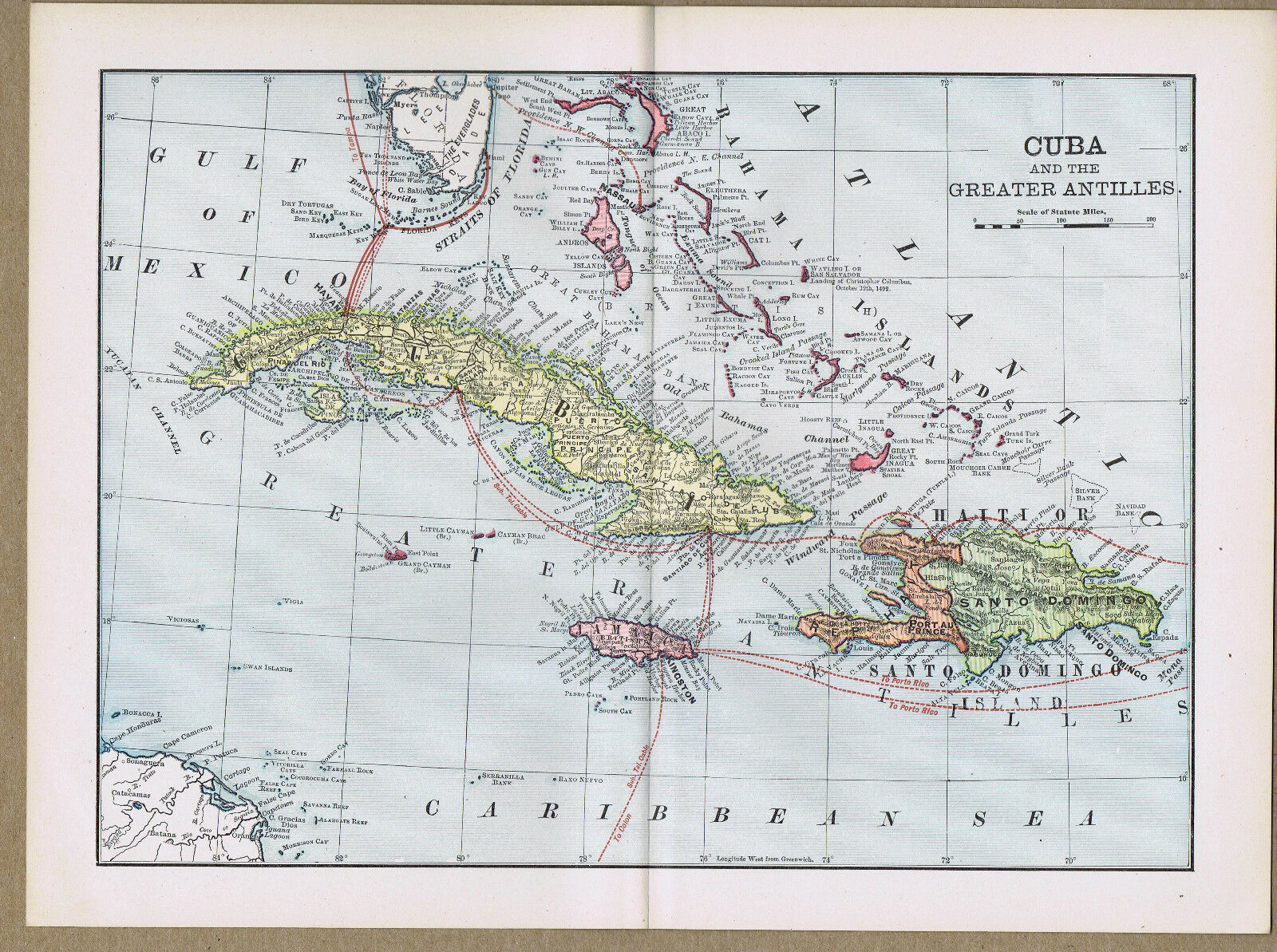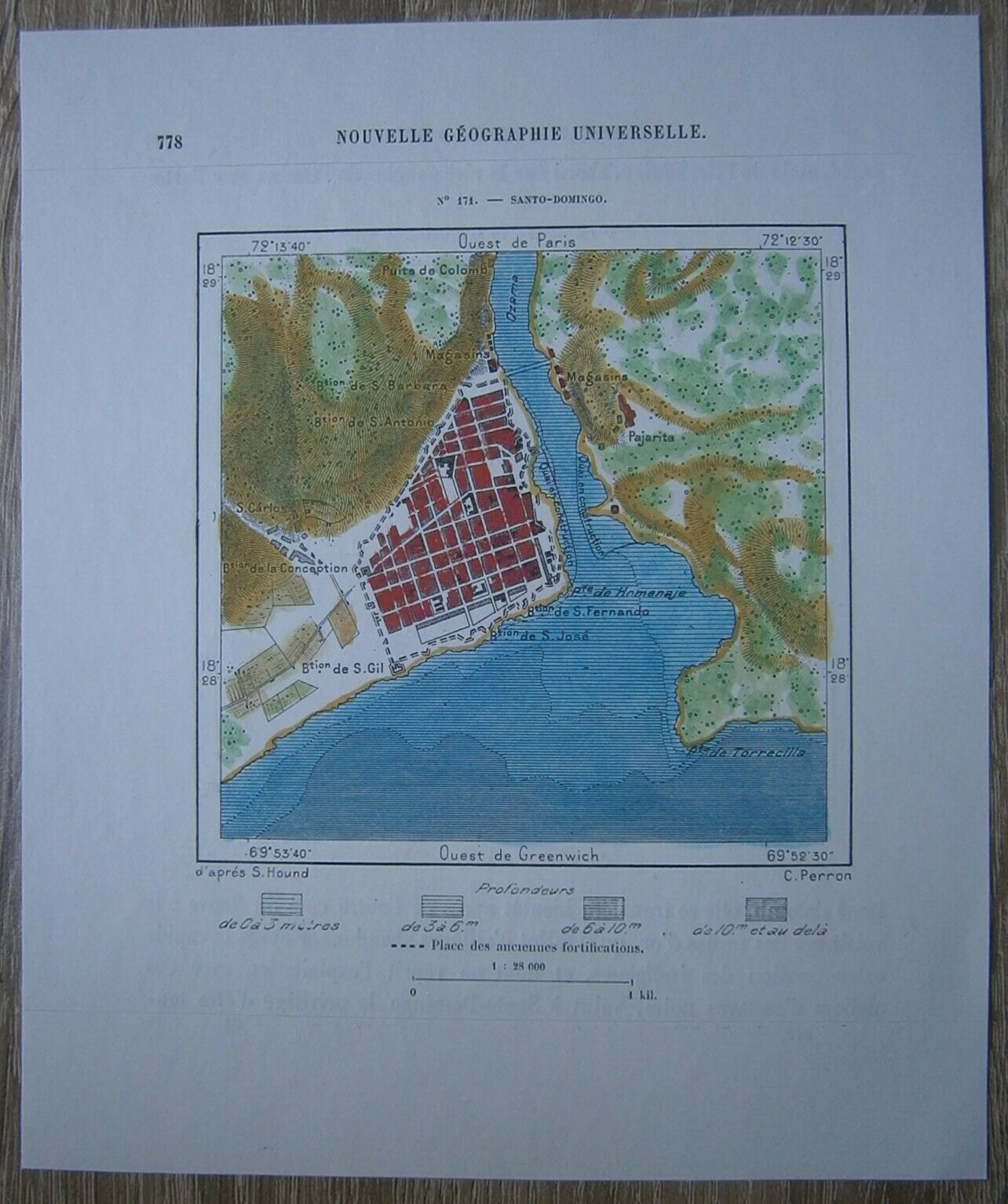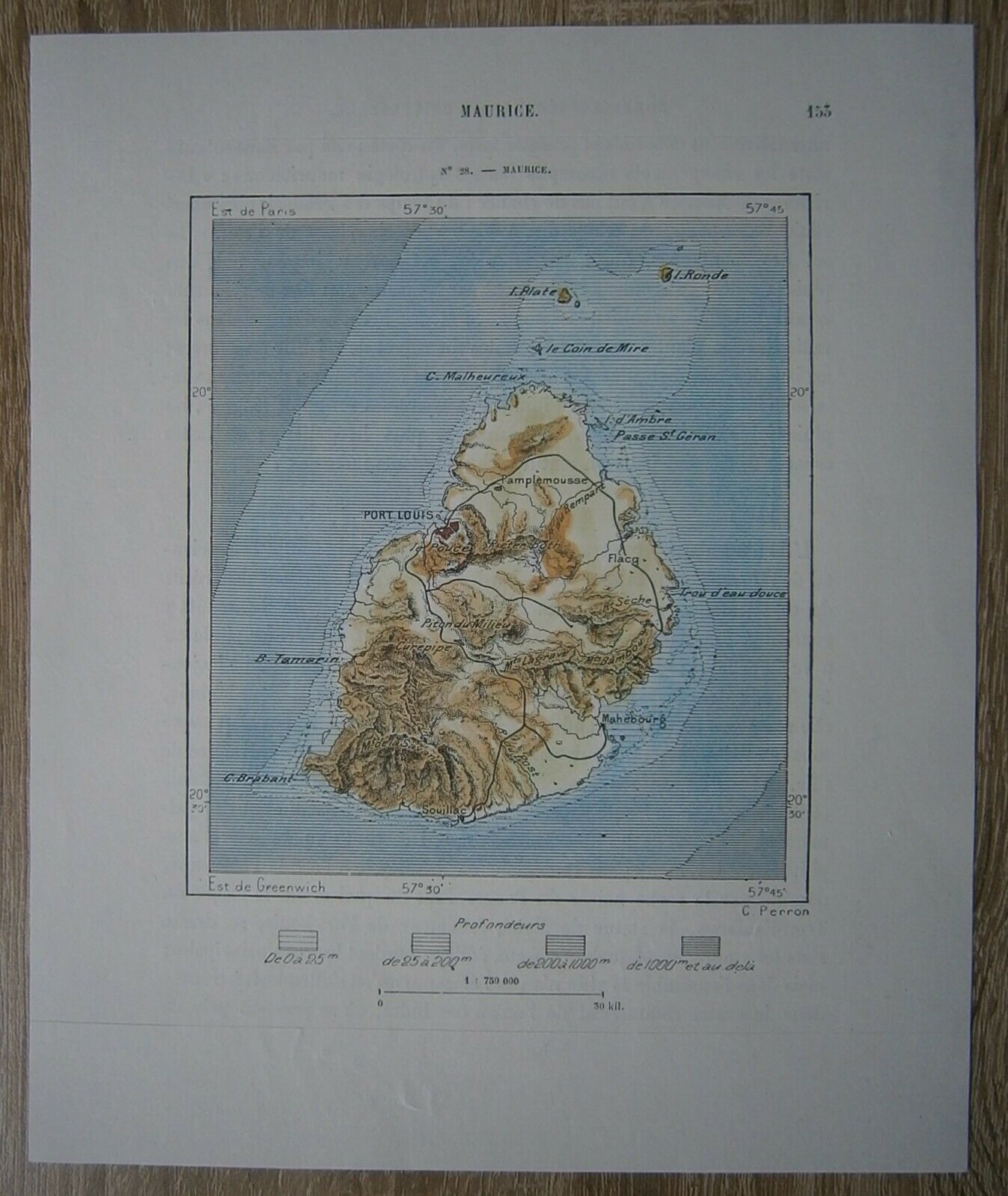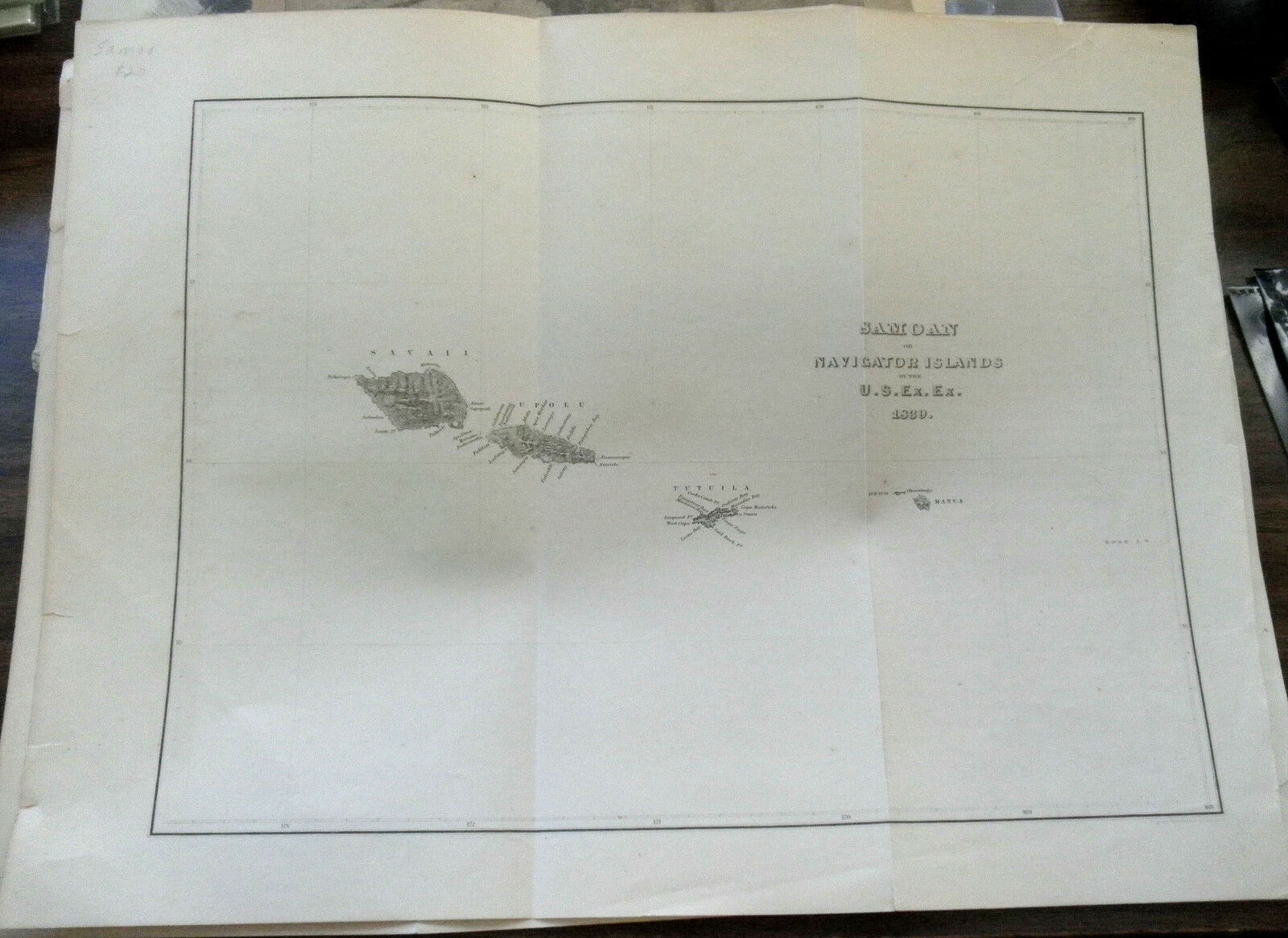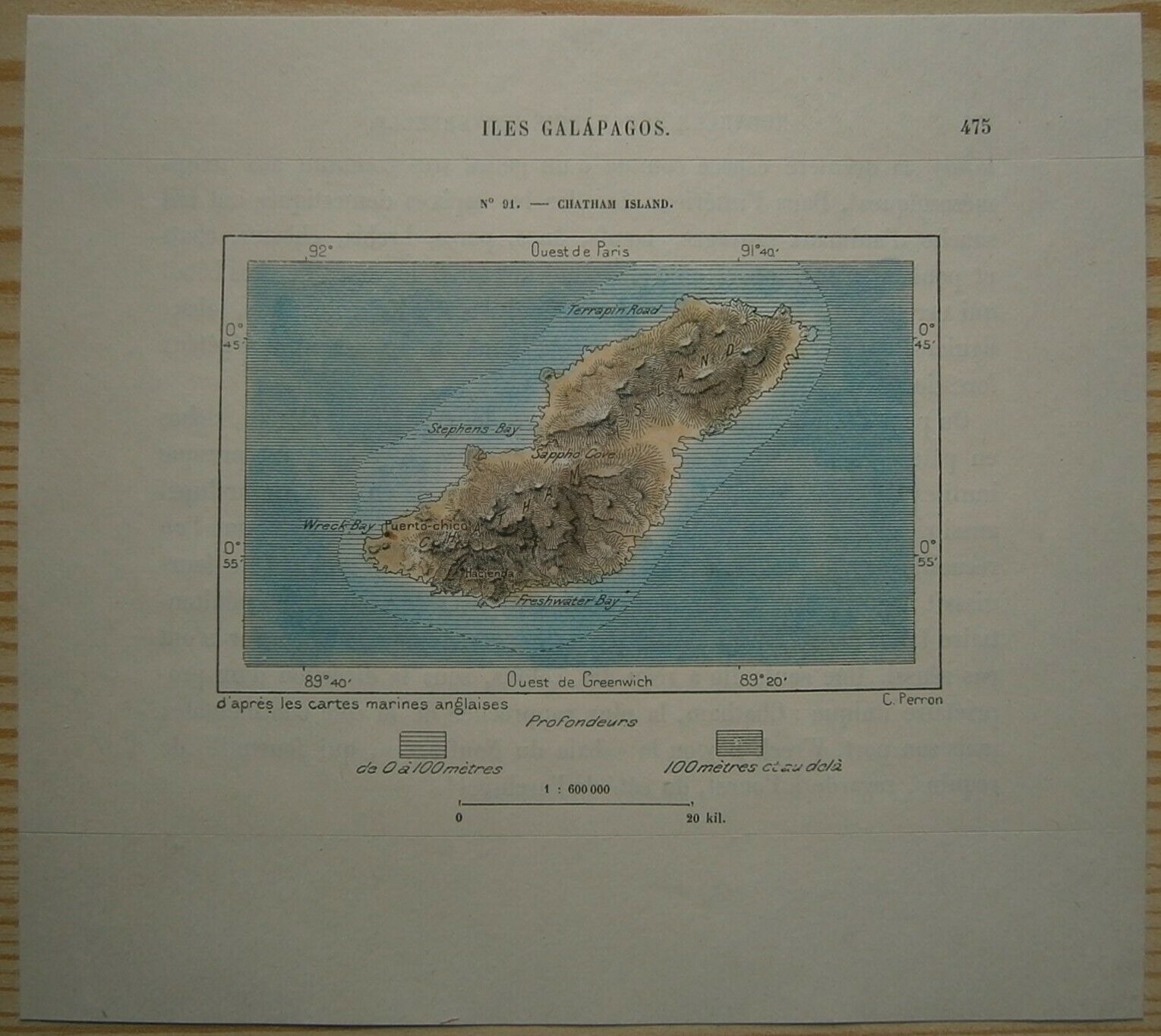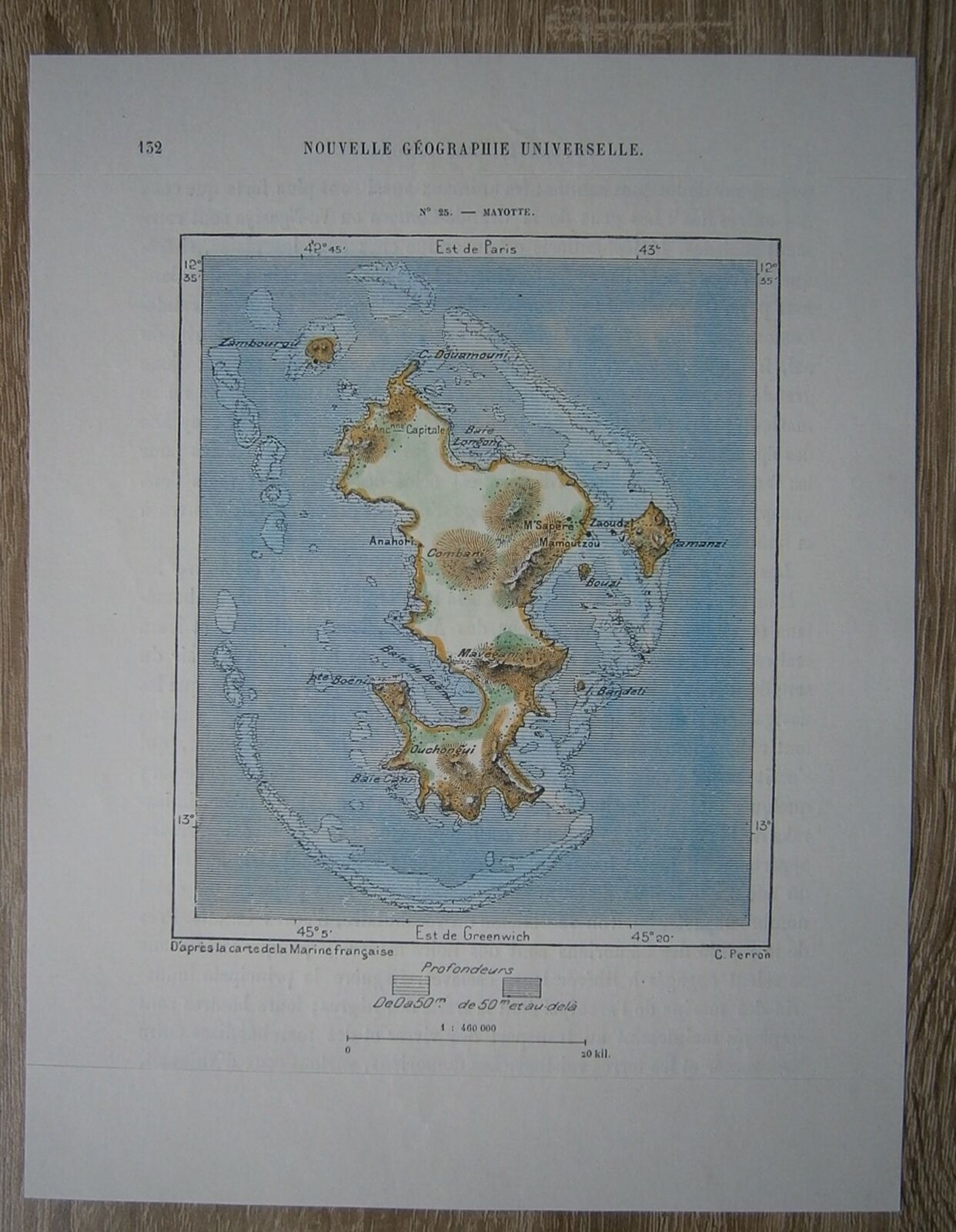-40%
1893 Perron map PORT OF SPAIN, TRINIDAD, LESSER ANTILLES (#20)
$ 10.55
- Description
- Size Guide
Description
Perron18_0201893 Perron map PORT OF SPAIN, TRINIDAD, LESSER ANTILLES (#20)
Nice map titled
Puerto Espana,
from wood engraving with fine detail and clear impression, nice hand coloring. Overall size approx. 19.5 x 17 cm, image size approx. 11 x 11 cm. From
La Nouvelle Géographie universelle, la terre et les hommes
, 19 vol. (1875-94), great work of Elisee Reclus. Cartographer is Charles Perron.
Port of Spain
also spelled Port-of-Spain
capital city and chief port of Trinidad and Tobago, southeastern West Indies. It is on the western coast of the island of Trinidad below the northern peninsula on the Gulf of Paria, which separates the island from the northeastern coast of Venezuela. The city is laid out in geometric patterns with parks and squares; on the hills behind Port of Spain are residential suburbs. At the centre of the city is the business district, near the Gothic-style Holy Trinity Cathedral and the Queen's Park Savannah—the city's largest open space and a popular site for recreation. From this area radiate many of the most important streets, and around it are several buildings of historical and architectural interest, including the President's House, which stands in the grounds of the Botanical Gardens; Whitehall, which houses the office of the prime minister; the house of the Roman Catholic archbishop of Port of Spain; the Knowsley Building, which accommodates some government ministries; All Saints' Church (Anglican); and the neo-Renaissance Red House, rebuilt in 1906, which contains the Parliament and government offices. There are Muslim and Hindu houses of worship in the city. Among the educational institutions are three well-established secondary schools: Queen's Royal College, Fatima College, and St. Mary's College. One of the campuses of the University of the West Indies is situated at St. Augustine, about 10 miles (16 km) east of the city.
Port of Spain is not dependent on tourism, as are many Caribbean islands, but has a diversified industrial base, including the production of rum, beer, margarine and oils, cigarettes, plastics, and building materials. There are also sawmills, textile mills, and citrus canneries. Angostura aromatic bitters, a popular ingredient in cocktails, is produced only in Port of Spain, its formula a closely guarded secret. Technical institutes train workers for various industries. Port of Spain is linked by good roads with other parts of Trinidad. The port has a key position on world shipping routes and is a centre of trade within the West Indies. At Piarco, about 15 miles (25 km) east of the city, is the country's chief airport. Pop. (2000) 49,031.
